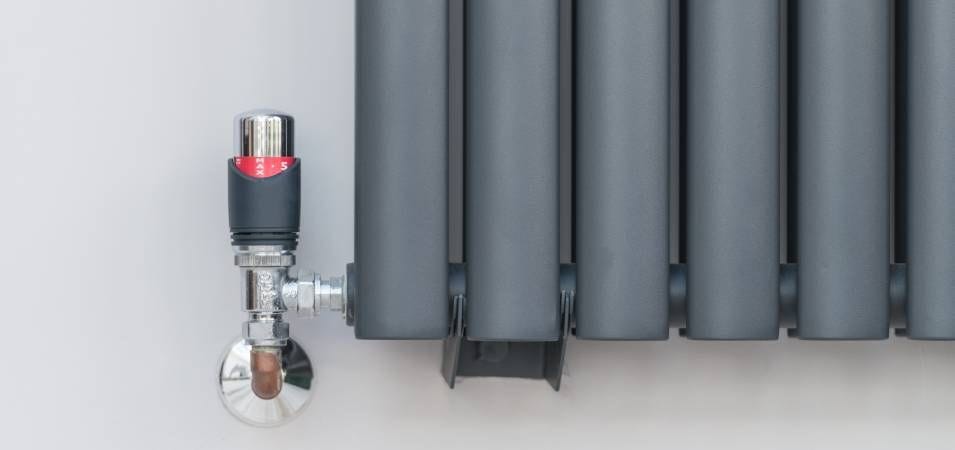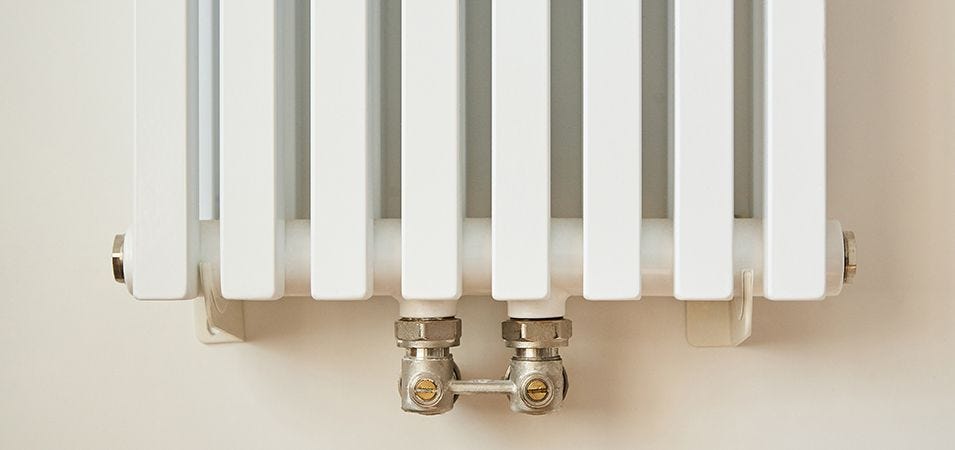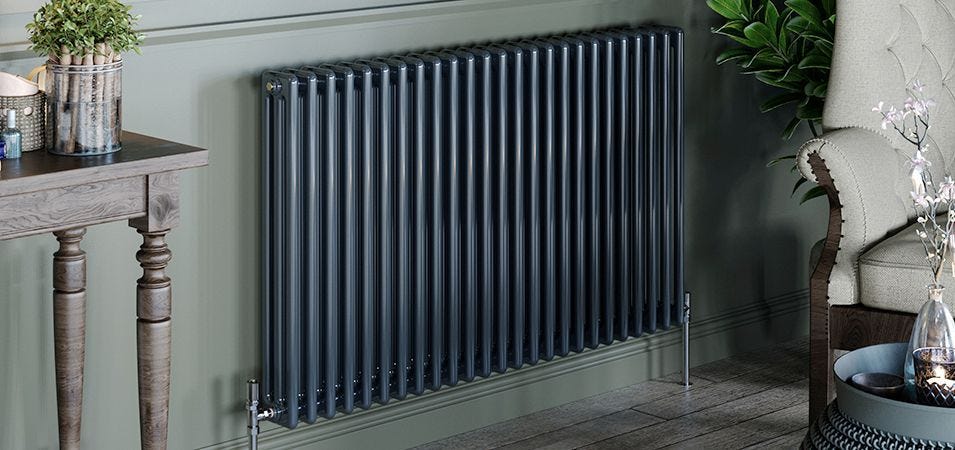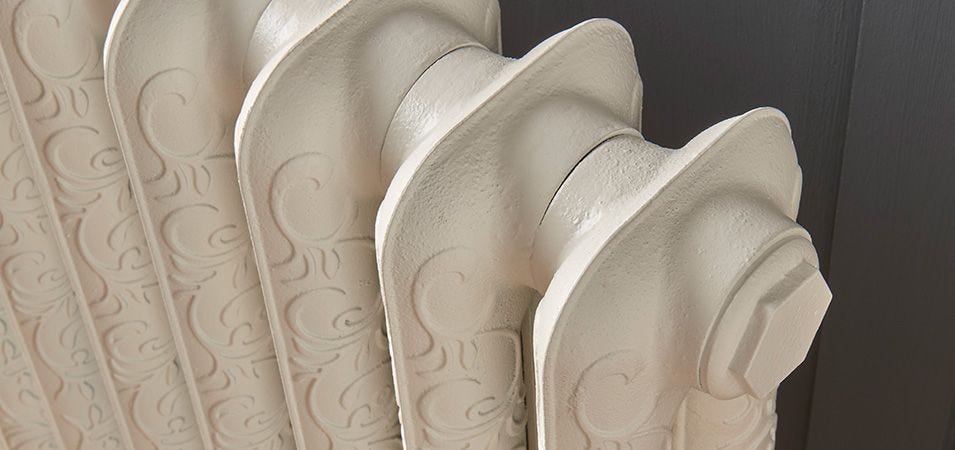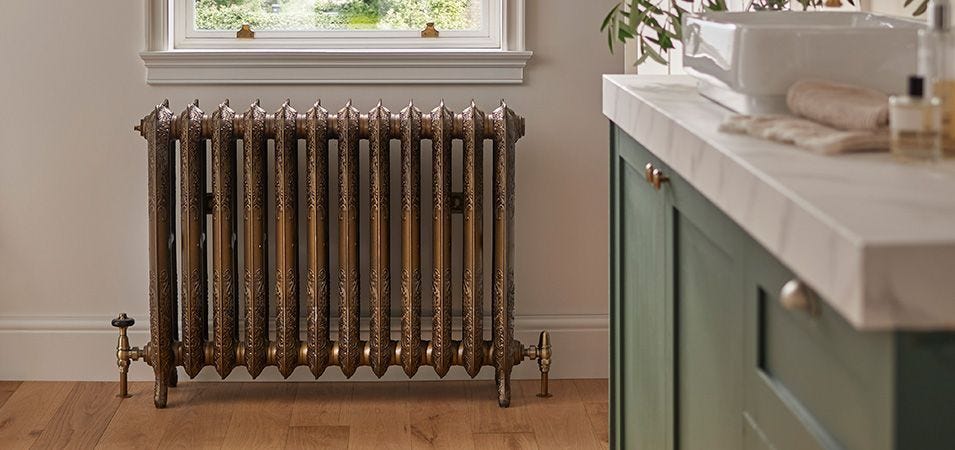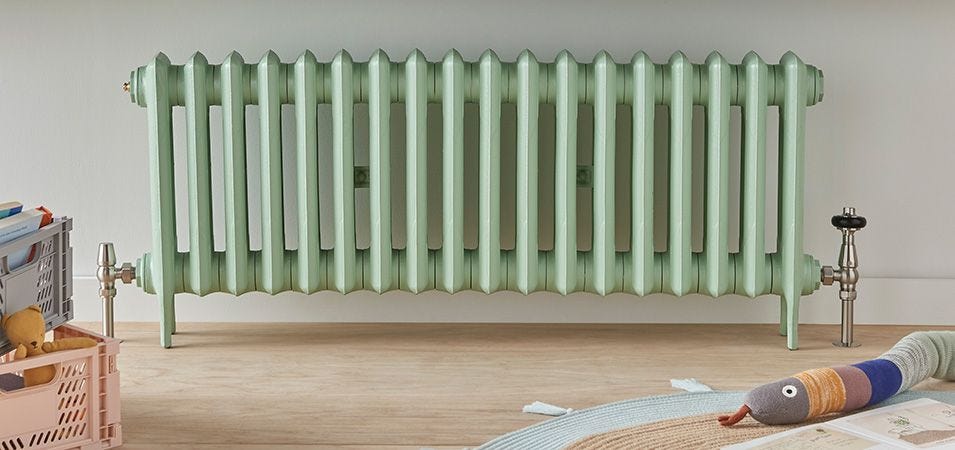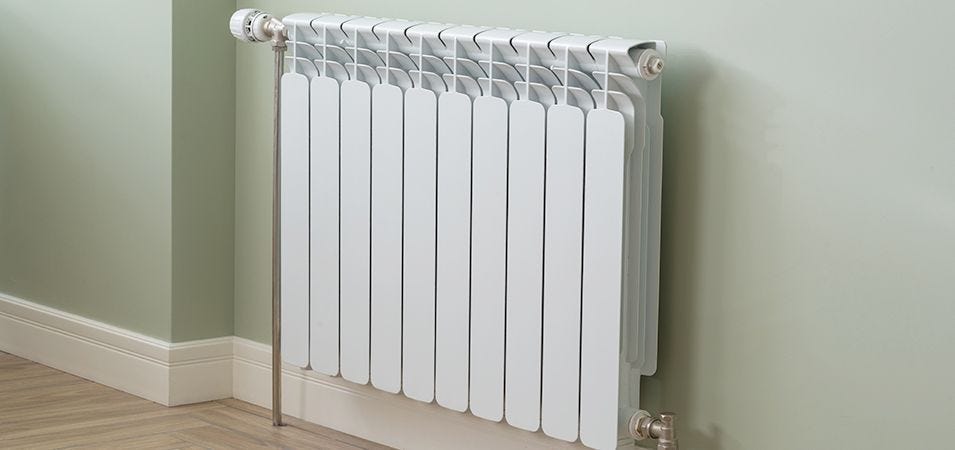How to stop your heating pipes from making noises
A well-maintained central heating system should come on smoothly, efficiently and, most of all, quietly. Noises such as banging, knocking, ticking or creaking can be annoying and can even give the more superstitious among us the impression that the house is haunted!
Sometimes a bit of noise from the central heating is nothing to worry about, however in certain instances it can be a symptom of something more serious. In this article we'll look at why your heating pipes might be making a noise and what you can do to prevent it.
Why do heating pipes make noises?
There are several reasons why heating pipes make noises. Many of the noises are different from one another and the nature of the noise can help to indicate what the issue is.
Trapped air
Over time and lots of use, air can creep into your central heating system and, when enough air gets trapped, it can cause your pipes and system to make noise. Water and air flowing through pipes and radiators can result in clicking, ticking or tapping noises.
While the sound is a little irritating, more importantly, this trapped air could mean your radiators aren't heating up properly. This means your room is not getting up to the desirable temperature and your boiler and pump might be working harder to compensate. Over time this will lead to higher heating bills and could reduce the lifespan of some of your heating components.
Build-up of mineral deposits
If you live in a hard water area then the water flowing through your pipes will contain lots of minerals, a high percentage of which is calcium.
When hard water dries, it leaves behind a white residue also known as limescale. You may have seen such deposits around the plughole in your sink or inside a kettle. When the limescale is visible it's easy to clean and deal with. However, the build up inside your heating system is invisible until it starts to cause problems.
Whistling and tapping noises are common symptoms of internal mineral deposits as water struggles to flow through narrowed pipework. Similarly to air trapped in the system, you may also experience radiators that are hot at the top but cold at the bottom.
- Further reading: What can cause gurgling and whistling sounds in my heating system?
Copper pipes expanding
Plastic piping is much more prevalent in houses built over the last 20 years or so, due to their cheaper cost and increased flexibility, however older houses are tend have their central heating networks constructed with copper piping.
When copper pipes get hot, as a result of hot water flowing through them, they naturally expand in size. This expansion can cause them to come into contact with other surfaces around them, such as walls, floorboards, joists and brackets. Creaks, groans, rattlings and knocks are common sounds associated with this issue.
As long as pipes are well fastened and secured, this issue is not particularly problematic and is a natural part of the expansion process of copper. Though, should the noises get particularly loud it could be time to bring in a professional.
- Further reading: Why does my heating system make arattling noise?
Water hammering
If you are hearing banging noises when you switch on a tap, you system could be experiencing 'water hammering'.
This is usually caused by the fact that the water is flowing in one direction through your heating system then is suddenly caused to reverse direction when the tap is switched on. This sudden change of direction is can cause a loud clanging or banging in your pipes and should stop when you switch the tap off.
Over time, this repeated change of direction in the water flow can put a lot of stress on your pipework and can led to leaks of pipe failure if left unchecked.
- Further reading: Why is my radiator making a banging noise?
How to stop the banging, creaking and ticking noises
The types of noises described above are rarely cause for panic, but should be dealt with in order to keep your central heating system running smoothly, efficiently and more quietly.
Bleed your radiators
If you have a little bit of DIY knowledge, them bleeding air out of your radiators is a very easy plumbing task to carry out. Letting out the trapped air should stop the clicking and ticking noises and should enable you radiators to heat up evenly.
- Further reading: How to bleed a radiator: a complete guide
Clean your system
Getting a professional round to powerflush your heating system often helps to reduce noise and help your system to run more smoothly.
As well as limescale, other debris like rust and dirt can build up in your system. Often this forms a sludge in the bottom of your radiators and stop them heating up properly. Having someone flush out your heating system will clear this debris, allowing the water to flow around your system normally and enable your radiators to heat up to their full potential.
- Further reading: How to remove limescale from a heating system
Secure loose pipes
Unless you're very experienced, then this will probably be a task for a professional plumber as you'll likely need to pull up floorboards or access interior walls. However, this could be a very worthwhile job and will help to seriously reduce some knocking, groaning or creaking noises that you may have been experiencing.
Pipes that are secured into place are far less likely to come into contact with other services and are likely to reduce the chances of greater problems from happening in the future.
Contact a qualified heating engineer
For serious banging noises that might be causing the reverse water flow when your turn on a tap, this should be something dealt with by a professional.
Not only will they be able to sort out this issue and reduce the noise, they may also identify other potential issues that need attention. It's recommended that you have your boiler serviced every 12 months, so combining noise reduction with the maintenance will get your system running smoothly, potentially saving you money on your regular heating bills and prolonging the life of your central heating system.


